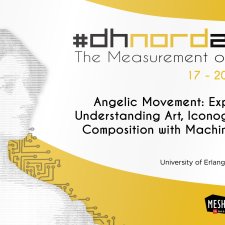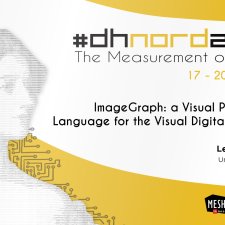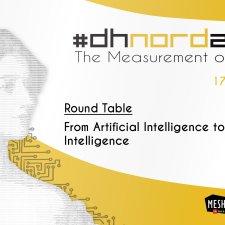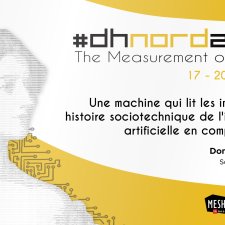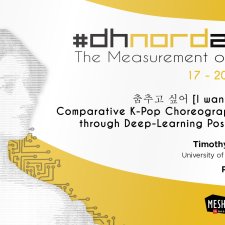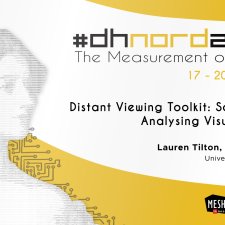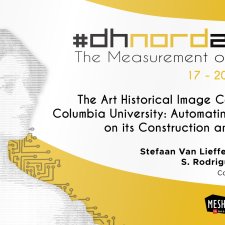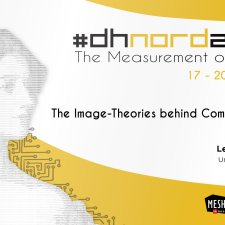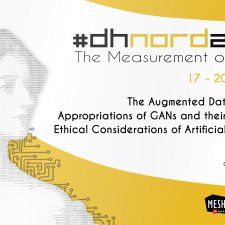Notice
Paintings by Artificial Intelligence. Large-scale search for visual similarities
- document 1 document 2 document 3
- niveau 1 niveau 2 niveau 3
Descriptif
In recent years, museums, archives and other cultural institutions have initiated important programs to digitize their collections. Millions of artefacts (paintings, engravings, drawings, ancient photographs) are now documented in digital photographic format. Furthermore, through progress in standardization, a growing portion of these images are now available online, in an easily accessible manner through textual metadata. But images are not only text.
How can such large-scale art history collections be made searchable? Can deep learning approaches open new avenues for composing visual queries? What are the new forms of understanding that can be produced if all the images are organized on a large-scale morphological graph? The results of research conducted for the Replica project at the Digital Humanities Lab of École Polytechnique de Lausanne demonstrates that the search for patterns by visual similarity open new discoveries in attribution, production strategies of artistic workshops, circulation of motifs through different geographies, problems of taste evolution and recontextualization of the fortune of certain visual formulas.
Searching for images using other images also allows to approach the problem of iconographic choices in a different way and shows the logic of reciprocal influences between authors independently of stylistic evaluations. It is becoming clearer that the current extent of our visual knowledge is only the tip of an iceberg of visual document, the largest part being still immersed. Digitization allows many images of artworks that had never even been seen by specialists and curators to come to light and be studied. Simultaneously, as digitization progresses, the images already known get inserted in a progressively more granular network of visual relationships that fosters novel reinterpretations. In this evolution, the logic of the image collections that structured art history for centuries is fading away for the progressive emergence of a single interconnected digital space.
Isabella di Lenardo (École polytechnique fédérale de Lausanne)
Thème
Dans la même collection
-
Angelic Movement. Exploring and Understanding Art, Iconography and Composition with Machine Learning
2e intervention de la 2e session du colloque DHNord 2020
-
ImageGraph: A Visual Programming Language for the Visual Digital Humanities
1ère intervention de la 5e session de DHNord 2020
-
Tracking the Circulation of Images Digitally: From Artistic Cartography to the Study of Visual Cont…
Joyeux-PrunelBéatrice1ère intervention de la 1ère session du colloque DHNord 2020
-
From Artificial Intelligence to Aesthetic Intelligence
Table ronde de la 3 journée du colloque DHNord 2020
-
Understanding Images Through Machine Learning and Deep Learning
Table ronde de la 2e journée du colloque DHNord 2020
-
Une machine qui lit les images : une histoire socio-technique de l'intelligence artificielle en vis…
CardonDominique3e intervention de la 3e session du colloque DHNord 2020
-
"I Want to Dance": Comparative K-Pop Choreography Analysis Through Deep-Learning Pose Estimation
3e intervention de la 2e session du colloque DHNord 2020
-
Distant Viewing Toolkit: Software for Analysing Visual Culture
2e intervention de la 5e session du colloque DHNord 2020
-
The Art Historical Image Collection at Columbia University: Automating Research on Its Construction…
2e intervention de la 1ère session du colloque DHNord 2020
-
The Image-Theories behind Computer Vision
1ère intervention de la 3e session du colloque DHNord 2020
-
Transfer Learning and Visualization of Neural Networks for Artistic Images
1ère intervention de la 2e session du colloque DHNord 2020
-
The Augmented Dataset: Artistic Appropriations of Gans and Their Bearings on Ethical Considerations…
Intervention de la 4e session du colloque DHNord 2020


